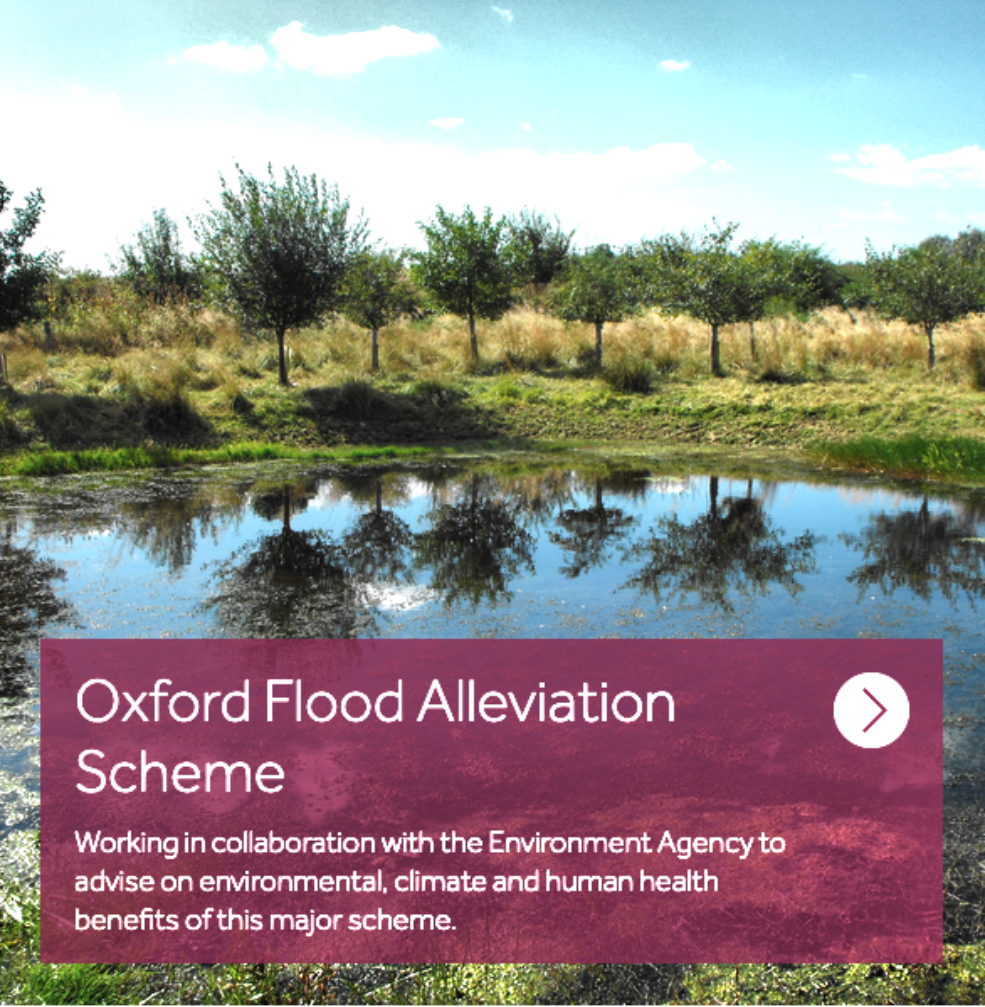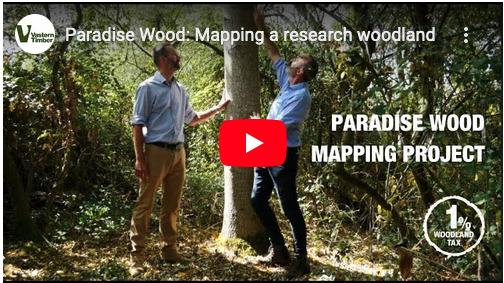Manage our Environment
Individuals may feel that any change they might make to reduce their carbon footprint is rather like trying to stop Niagara Falls with a teaspoon. But if humanity can be persuaded to coordinate millions of teaspoons, we can make a substantial difference to the word that our children and grandchildren will inhabit. Join your local environmental groups and encourage us all to swap sustainability for consumerism. You are very welcome to join us at Biodiversity.
These pages gives some information to individuals, but more importantly to communities, on managing our environment: Soil Management, Watercourse Management and Forestry Management.
Bird Feeding
The Hampshire & Isle of Wight Wildlife Trust share their top tips for feeding inland birds this winter.
Wild Oxfordshire
Soil Management
The primary objective of soil science is to better understand how soils work so that society can derive optimum value from the land both now and sustainably into the future.
Soil science is relevant to many areas of land management including: food, fibre, fuel and timber production, biodiversity conservation, recreation, water and climate management and land allocation under competing demands for space from our society. For more information on this subject go to the British Society of Soil Science website.
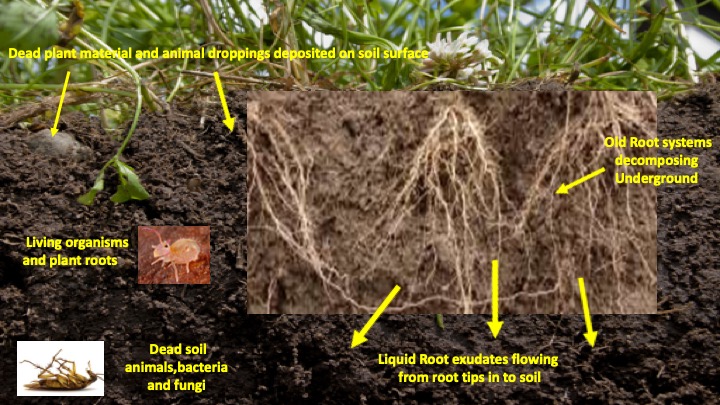
Sequestering Carbon back into the soil
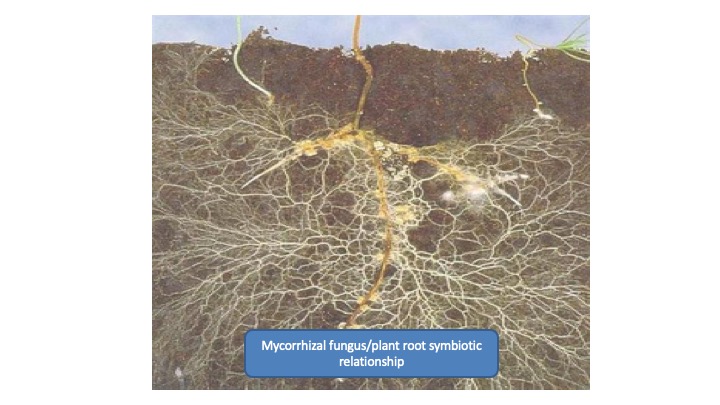
Fungus/plant symbiotic relationship
Soil science is also key to the restoration of soils that have been subject to harmful industrial intervention, addressing issues such as the re-instatement of contaminated land and mineral extraction sites. For an introduction to the impact of developments on land and soils, see the British Society of Soil Sciences Video – The role of Environmental Impact Assessments in promoting healthy soils.
Watercourse Management
The Earth Trust
The Earth Trust states: ‘We use the places we care for to demonstrate nature based solutions and the power of engaging people with the natural world, in order to influence for more accessible and better green spaces.’ See Water and Wetlands for their water realted projects.
Their Oxford Flood Alleviation Scheme will reduce the risk of flooding by lowering the existing land (mostly farmland and flood meadow) to the west of Oxford, creating more capacity for flood water. The design will create a new stream with a gently sloping floodplain of wetland habitat, grazing meadow and wildflowers running alongside it.
The Chalgrove Brook: Rescuing a Chalk Stream
River Thame Conservation Trust are proud to present The Chalgrove Brook: Rescuing a Chalk Stream. This award-winning short documentary film was created by local photographer & filmmaker Nicola Schafer in collaboration with Watlington Climate Action Group.
The Chalgrove Brook is a film about one of the rare chalk streams within the Thame catchment, which rises in the hills above Watlington and flows through Cuxham to Chalgrove and Stadhamption, to Chiselhampton where it joins the River Thame.
The stream is a precious habitat for wildlife, and is also historically important, playing a vital part in the development of the settlements along its length. But the stream is under threat from all sides. Find out what communities along the stream have been doing to help restore and protect it by watching the film.
Wild Oxfordshire
The Wild Oxfordshire project Delivering natural solutions for effective flood management. The Evenlode Catchment Partnership (ECP), hosted by Wild Oxfordshire, has a vision for an Evenlode with improved water quality, enhanced flood management, enriched biodiversity, with greater community engagement with rivers, at local and landscape scales.
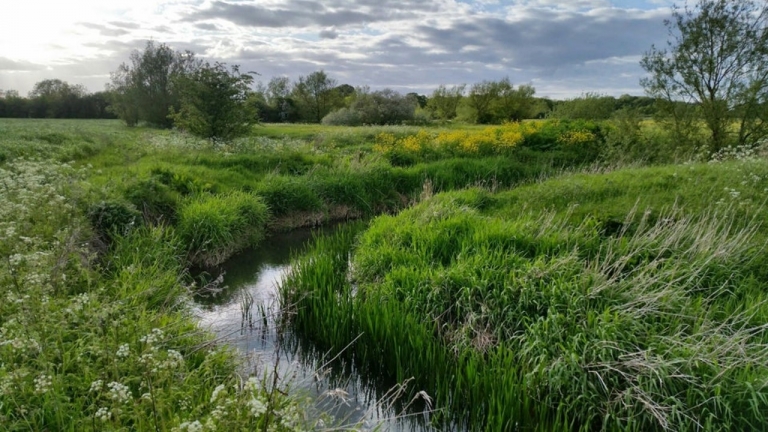
Stroud District Councils Natural flood management (NFM)
Stroud District Councils Natural flood management (NFM) project aims to reduce the downstream maximum water height of a flood (the flood peak) or to delay the arrival of the flood peak downstream, increasing the time available to prepare for floods. It works by restricting the progress of water through a catchment by making the catchment rougher and more difficult for water to flow quickly over land and in stream. The phrases “Slow the flow” or “Working with natural processes” are sometimes used to describe this approach to reducing flood risk. NFM strategies can be loosely classified by their likely location and distribution in a catchment They rely on one, or a combination, of the following underlying mechanisms: attenuation, increasing soil infiltration, slowing water flow. Measures include creating `leaky dams’ which involves positioning fallen trees across water courses to slow the flow of flood water. More about this project in the Stroud News.
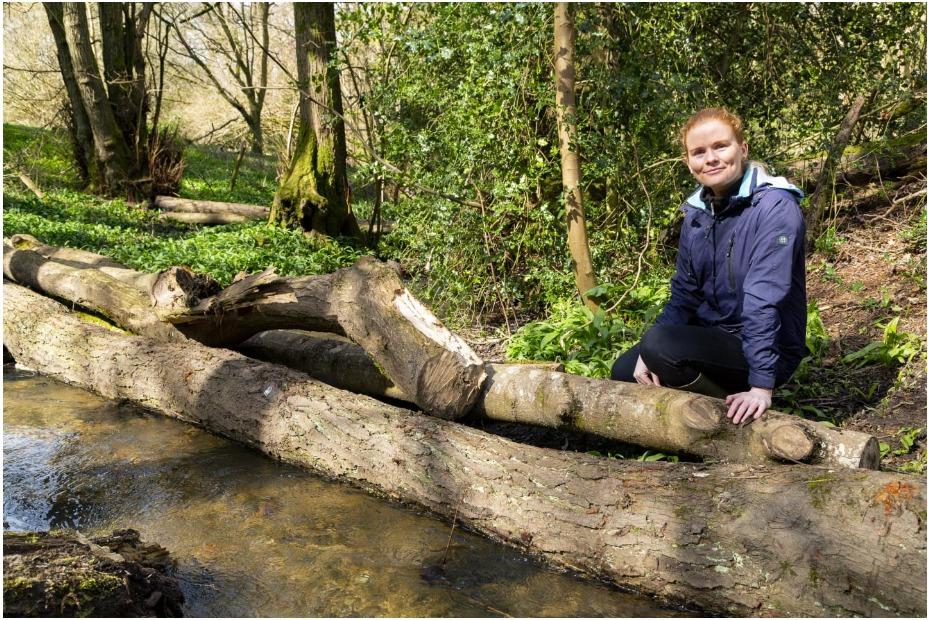
Rural SuDS Project Officer Rosemary McCloskey with a `leaky dam’
Forestry Management
The Sylva Foundation is a charity based locally in Long Wittenham with a mission to use their forestry knowledge and information technology skills, supported by state-of-art evidence, to provide innovative solutions to some of the greatest environmental challenges facing modern society. They deliver the training and education necessary to support the transformation of society, focussing on the stewardship of our forests and the utility of home-grown timber. They provide a hub for small businesses and craftspeople who design, innovate or make in wood. Businesses range from furniture making and outdoor structures, to boatbuilding and upholstery. There is also a small-scale timber yard on the site.
myForest is a flagship project for the Sylva Foundation. myForest brings the latest technology to the forestry sector, for owners of small forests, community forest groups, environmental charities, and forest management companies. myForest provides comprehensive online mapping, digital tools and the latest resources not only to sustainably manage forests, but to provide unique support for the creation of new forests around Britain. The myForest platform, supports over 8,500 users who collectively manage over 7% of Britain’s privately owned forests.
Paradise Wood in south Oxfordshire was planted by Earth Trust in the 1990s, as a research centre for hardwood tree and is a unique resource for learning and advocacy. Thanks to funding from Vastern Timber, Sylva Foundation and Earth Trust will be working together on a new mapping project, using Sylva’s myForest platform to develop an online UK Forestry Standard management plan.

